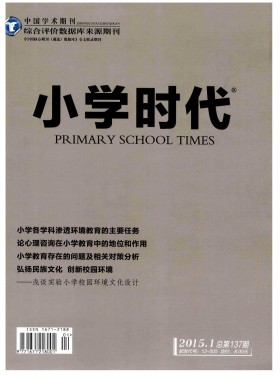前言:中文期刊網(wǎng)精心挑選了小學英語試卷范文供你參考和學習,希望我們的參考范文能激發(fā)你的文章創(chuàng)作靈感,歡迎閱讀。

小學英語試卷范文1
英語試卷分析的形式多種多樣,比如書面與口頭分析的結(jié)合式、按序逐題分析的次序式、抓重點解決的重點式、使知識系統(tǒng)化的歸納式、以一題擴多題的放射式等。教師在教學中應(yīng)結(jié)合多種分析方式,因題制宜,因材施教,將分析形式合理地運用到小學英語試卷分析中,才會有收效。
一、課前準備階段
1.進行分類統(tǒng)計。首先,找出最高分、最低分、優(yōu)秀率、及格率和平均分等反映全班考試情況的數(shù)字。然后,統(tǒng)計試題中每道題的失分率,逐項分析,了解學生對每類題型的掌握情況。最后,分析試卷中各試題所考查的知識點及在試卷中的分布情況,判斷試題的難易度,給試題做出總體的評價。
2.分析試卷中典型錯題。分析試卷中的錯題可以初步認識哪些是薄弱環(huán)節(jié),以便在課堂上進一步深入分析。對于典型錯例要深入分析,診斷錯誤的原因。
3.備好教案。備好試卷分析課的教案就是要在統(tǒng)計分析的基礎(chǔ)上,確定哪些題略講,哪些題重點評講。講解時不應(yīng)面面俱到,逐題講解,教師要做到有的放矢,有針對性地去講解學生普遍做錯的題目。
二、課堂分析的實施步驟
1.公布成績。表揚學生。一份好的試題猶如一面鏡子,能清楚反映出學生的學習水平。教師在分析試卷時,對成績優(yōu)秀的學生進行鼓勵,要求其力爭更上一層樓;對成績暫時不理想的學生,保護其自尊心,發(fā)現(xiàn)其閃光點,讓其揚長避短;對于學困生,也采取表揚鼓勵為主的方法,從試卷中找出其可取之處,肯定其成績。
2.小組討論。嘗試解決。在教學中,教師可以嘗試小組合作方法,在小組中先行討論難點及重點,然后以小組為單位,上臺講解。在講解過程中,學生和教師可以隨時質(zhì)疑,這就要求講解的學生能隨機應(yīng)變,觸類旁通。在學生解答過程中,教師隨時啟發(fā)引導學生作進一步思考,指導學生對以上解決的問題嘗試歸納規(guī)律,使知識提煉升華。教師可適當?shù)剡M行補充,在關(guān)鍵的地方畫龍點睛。
3.深化理解,聯(lián)想拓展。試題受考試卷面、時間的限制,不可能將所學知識全部涉及,面面俱到。因此,教師就可運用“以一題擴多題的放射式”來進行試卷分析。分析的內(nèi)容要反映英Z知識的前后聯(lián)系。不能僅僅局限于考點,而應(yīng)引導學生思考相關(guān)的知識點,以達到舉一反三、聯(lián)想遷移的目的。如在出現(xiàn)一些常用詞組時,一定要求學生聯(lián)想到類似的結(jié)構(gòu)和能夠與之相對比的結(jié)構(gòu)。如在試卷中出現(xiàn)play football這一詞組,就要求學生想到類似的詞組play cards、play ping-pong……然后,與詞組play the piano進行比較。(play+球類與play+the+樂器。對比記憶。)
三、課后溫故整理
1.溫故知新,授之以“漁”。試卷中所涉及的知識點大都源于教材。教師在講評試卷時,要引導學生去回憶呈現(xiàn)這一知識的課文原句,既能起到鞏固課本知識的作用,又能引起學生對課本知識的重視,促使學生養(yǎng)成熟練背誦課文、認真鉆研教材的良好習慣,從而使其對課文基礎(chǔ)知識的掌握更為牢固,更為扎實。
小學英語試卷范文2
1.A.next toB.in front ofC.of course
2.A.motherB.summerC.winter
3.A.flyB.classC.sleep
4.A.weatherB.rainC.sun
5.A.writeB.letterC.colour
二、單選
1. I have _______ orange.
A.a
B.an
2. _____ do you see? A monkey.
A.What
B.Where
3. There ______ three boys in the room.
A.is
B.are
4. _____ you walk on the grass in the park?
A.Are
B.Can
5. ______ here.
A.Go
B.Come
三、閱讀理解
閱讀理解
I am in the park. I can see many fish in the river. I hear the bees on the flowers. I can play on the swing. But I can not walk on the grass. Look, this is my umbrella. It is pink. I can sit under my umbrella. I am happy.
答案
1. I am in the _______.
A. park
B. zoo
2. I can see many______ in the river.
A. ducks
B. fish
3. My umbrella is ______
A. red
B. pink
4. I can play on the ______.
小學英語試卷范文3
一、用所給詞的正確形式填空。
1. I go to (school) at 7:15.
2. I do some (read) in the evening.
3. I ave dinner for 40 (minute).
4. How about (play) fooball?
5. There are six (family) in the picture.
6. you (like) football? Yes, we .
7. I do some (write) for 20 minutes.
8. It never (snow) in China in June.
9. The children always do (they) homework at night.
10. I (not) have dinner at home.
11. How about (take) a long after after supper?
12. I’m very happy (meet) you.
13. They often learn English by (chant).
14. My brother (play) football after school.
15. you often (have) lessons on Sundays? No, we .
16. The boy (write) a letter now.
17. School (begin) at 9:00.
18. I’m (read) an email from Lucy.
19. Let me (tell) you something about my daily life.
20. How about (take) a long walk after dinner?
21. Lucy is very (friend) to me.
22. School (end) at three in the afternoon.
23. She (not go )out in the evening.
24. My sister and I often (wash) clothes on Sunday.
25. (not do) your homework now.
26. She helps her mum (do) the housework.
27. It never (snow) in China in June.
28. She can ask him (help) her.
29. Tell them (not sing) here, Lucy.
30. Look, the dog (run) after a cat.
31. What time your brother (get) home on weekdays?
32. There (be) a basketball and some books on the table.
33. Do you know your (father) birthday?
34. Each of the students (have) a notebook.
35. she (like) dancing?
36. We (not have) lunch t home.
37. She (play) games now.
38. They are good at (swim)
39. He often (walk) to school.
40. (dance) monkey (dance) very well.
41. It is difficult (learn) English.
二、填入合適的詞。
1. I’m reading an email Lucy.
2. Let me tell you something my daily life.
3. I g to school 7:30 every day.
4. School is at 4:30 in the afternoon, then we go home.
5. Please tell me email.
6. I watch TV thirty minutes every day.
7. The boy with me to school by bus every day.
8. I go to school by bus.
9. I’m an email Peter.
10. He goes to bed at about ten every .
11. Her father has lunch at home. Because he is very busy.
三、單項選擇。
( )1. We bike.
A. are not have B. have no C. don’t have D. no have
( )2. The boy new friends.
A. Have many B. has some C. have any D. has any
( )3. you an English book? Yes, I .
A. Does, have,does B. Do, have, do C. Does, has, do D. Do, has, do
( )4. Where Peter and Tom from?
A. do, come B. does, come C. do, comes D. does, comes
( )5. One of the girls Chinese.
A. am B. is C. be D. are
( )6. We can get there tomorrow. A. to B. at C. \ D. in
( )7. everyone like the tea? A. Does B. Can C. Are D. Do
( )8. How is your sister ? A. feeling B. to feel C. feel D. feels
( )9. I’m a teacher of maths, what you? A. to B. in C. about D. from
( )10. your homework in class.
A. Don’t B. Don’t write C. Don’t do D. Aren’t
( )11. My mum often comes and apples.
A. picking B.pick C. picks D. is picking
( )12. We have classes 8:00 17:00.
A. at, at B. about, about C. from, to D. about, at
( )13. My mother is very busy. She goes shopping.
A. always B. sometimes C. often D. seldom
( )14. he like playing football? A. Do B. Does C. Is D. Can
( )15. The boy often English by .
A. learns, read B. learn, reads C. learns, reading D. learn, read
( )16. I like , but my sister .
A. cooking, doesn’t B. dook, don’t C. to cook, don’t D. cooking, cooks
( )17. You can tell me your daily life email. A.for B.at C. by D. of
( )18. What you often at home?
A. does, do B. are, do C. do, doing D. do, do
( )19. You should practice your .
A. listen B. istening C. listens D. to listen
( )20. Peter always his mother the housework.
A. helps, to do B. helps, does C. help, do D. help, to do
( )21. He to bed at nine.
A. doesn’t often go B. often doesn’t go C. not often go D. go often
( )22. He goes to school again 13:30 the afternoon.
A. At, on B. at, in C. in, at D. on, at
( )23. That question . I can’t answer it.
A. easy B. is easy C. difficult D. is difficult
( )24. Our teacher tells us in the street.
A. not play B. no play C. not to play D. no playing
( )25. It is raining now, but he wants to waitfor her.
A. don’t B. still C. doesn’t D. also
( )26. Her mother starts lunch.
A. cooks B. to cook C. cook D. is cooking
( )27. It’s eleven o’clock, but he .
A. still B. still working C. is still working D. still is working
( )28. Let’s look his school bag. A. out B.in C. of D. inside
( )29. What do you have lunch school?
A. /, in B. for, in C. a, of D. for, at
( )30. day, we go to school bike.
A. One, on B. Every, by C. A, in D. One, at
( )31. We should be when we cross the street.
A. care B. careful C. carefuly D. carefully
( )32. The boy likes , but in winter he doesn’t like .
A. swimming, to swim B. to swim, swimming
B. swimming, swim D. swim, swimming
( )33. you can’t write, just draw pictures.
A. If B. So C. But D. Of
四、完成句子。
1. 讓我告訴你一些關(guān)于我日常生活的事。
Let you something my .
2. 早上九點開始上課。 School nine the morning.
3. 每天下午三點三十分放學。
School at every afternoon.
4. 晚飯后我看書或看電視。 Dinner, I do or watch TV.
5. 你可以通過電子郵件告訴我。 You can me .
6. 謝謝你的幫助。 you your .
7. 很高興收到你的電子郵件。I’m very your email.
8. 露西一天上六節(jié)課。Lucy six day.
9. 學生們通過做游戲?qū)W習英語。Students English games.
10. 飯后他經(jīng)常散步或給我讀英語故事。
After dinner he often or English stories me.
11. 我每天在家練習繪畫。I at home every day.
12. 帶來幾張你家人或朋友的照片。
a photos of your or your .
13. 周日我經(jīng)常和父母去看電影。
I often go and a my parents Sunday.
14. 彈鋼琴很難。 is to .
15. 有時候他幫媽媽做家務(wù)。
Sometimes she her mum the housework.
16. 我們應(yīng)該想她學習。We her.
五、按要求完成句子。
1. She has supper at home every day.
2. There are some pictures on teh wall.(否定句)
3. The boy often flies the kite on Sunday. (一般疑問)
4. We often go to work on foot.
5. My best friend is from Britain. (同義句)
6. We have seven classes every day.(否定句)
7. Tom doesn’t watch TV in the evening. (肯定句)
8. Sheoften learn English by singing and chanting.
9. She has four lessons a day.
10. He rides his bike to school every day.(同義句)
11. Jim does housework at home. (否定句)
12. I often take a walk with my friend. (用she 改寫為主語)
13. I do my homework at four. (用now 改寫句子)
小學英語試卷范文4
關(guān)鍵詞: 教學效能感中學英語教師職業(yè)倦怠
1.研究背景
職業(yè)倦怠(burnout)是Freudenberger于1974年首次提出的,主要用來描述個體在長期的工作壓力下,由于得不到有效緩解而產(chǎn)生的心理、生理上的疲憊。而有關(guān)元分析、交叉檢驗和驗證性因素分析的研究均表明Maslach(Maslach&Jackson,1986:18)的職業(yè)倦怠三成分說最能有效地解釋大量實證研究的結(jié)果。她將職業(yè)倦怠則分為三個方面:情緒衰竭、去個性化、降低的自我成就感。情緒衰竭是職業(yè)倦怠最核心、最明顯的特質(zhì),反映了與壓力相關(guān)的特質(zhì)。
雖近年來,國內(nèi)已把教師職業(yè)倦怠視為學校變革過程中所面臨的關(guān)鍵挑戰(zhàn),在新一輪的課程改革啟動,正在轉(zhuǎn)型中的中學英語教師面對嚴峻的形勢不僅要有相應(yīng)的語言能力和文化素質(zhì),熟練運用現(xiàn)代化多媒體技術(shù),更需要進一步投身于教學改革實踐,加強業(yè)務(wù)學習。此外,地域經(jīng)濟發(fā)展的不平衡,以及英語在經(jīng)濟和社會變革中的作用發(fā)生的轉(zhuǎn)變,使得中學英語教師同樣面臨著職業(yè)倦怠的困擾。
筆者參照國外文獻關(guān)于曲線調(diào)節(jié)作用驗證的方法,把效能感設(shè)定為二次調(diào)節(jié)變量,以探討其在壓力影響職業(yè)倦怠過程中的調(diào)節(jié)作用。
2.研究方法
2.1調(diào)查對象
本次調(diào)查的抽樣對象主要是來自廣西壯族自治區(qū)各市、鎮(zhèn)、縣等19所中學英語教師,實發(fā)問卷282份,實際回收有效問卷271份,有效回收率達到96.10%。在有效樣本調(diào)查中,其中男教師71人,女教師共200人;138名初中教師,133名高中教師。
2.2評定工具
教學效能感量表:參照俞國良(1995:159)等編制的《教學效能感量表》減縮而成,共27個項目,包括個人教學效能感與一般教育效能感兩個分量表。其中個人教學效能感項目17個,一般教育效能感量表項目10個。本研究中一般教育效能感分量表的克倫巴赫α系數(shù)為0.77,個人教學效能感的克倫巴赫α系數(shù)為0.84。一般教育效能感分量表、個人教學效能感分量表的分半信度依次為0.85、0.86。
Maslash編著的教師職業(yè)倦怠問卷(MBI)共三個維度22個題目,分別是情緒衰竭維度、去個性化維度和成就感維度。在本測量中MBI問卷的Cronbachaα系數(shù)為0.82,情感枯竭維度為0.86,去個性化維度為0.80,成就感維度為0.79。
兩個問卷均采用采用“0~4”5級評分方式,以2.5作為得分高低的標準考慮,對所有數(shù)據(jù)應(yīng)用SPSS10.0統(tǒng)計軟件包處理。
3.數(shù)據(jù)分析
3.1不同教師特征教學效能感的方差分析
教齡因素對個人教學效能感(F(1,268)=7.96,p
3.2中學英語教師職業(yè)倦怠狀況
教師的總體職業(yè)倦怠程度偏高(M=2.54,SD=0.46)。從職業(yè)倦怠的三個維度來看,情緒衰竭這一層面的倦怠感最為嚴重(M=2.89,SD=0.57),其次為去個性化(M=2.81,SD=0.61),而在自我成就感這一維度上職業(yè)倦怠感較低(M=1.92,SD=0.50)。總的來說,中學英語教師的職業(yè)倦怠感主要表現(xiàn)為情緒衰竭。
其中,性別因素對情感枯竭、自我成就感作用顯著(p
3.3中學教師教學效能感與職業(yè)倦怠關(guān)系回歸分析
個人教學效能感與情感枯竭(F=9.698,p
4.討論
4.1中學教師教學效能感的特點
中學教師的個人教學效能感顯著高于一般教育效能感。一般教學效能感是教師關(guān)于教育對兒童發(fā)展影響的看法,其形成依賴于整體的教育實踐及對教育現(xiàn)象的觀察與分析,與個體經(jīng)驗的聯(lián)系較少。個人教學效能感指教師對自己能夠給予學生以積極改變的能力評價,即相信自己有教好學生的技能技巧的信心,它更多與教師個人的教育教學經(jīng)驗相聯(lián)系并具有更多的個體意義。個人教學效能感比一般教育效能感對教師意味著更多的個體意義。教齡因素對教學效能感作用非常顯著,教齡學歷因素對教學效能感有顯著的交互作用。教學效能感的形成是一個受多種因素影響的復雜過程。教師所受的教育、教師的社會化水平、個體差異、學校環(huán)境因素、教師的教學經(jīng)驗、與學生家長的關(guān)系都會影響教學效能感。學歷因素代表著教師受教育的水平與職業(yè)準備狀態(tài),教齡則意味著教學經(jīng)驗。職業(yè)準備狀態(tài)與教學經(jīng)驗共同作用于教學效能感,會引起學歷水平不同的教師教學效能感隨著教齡的增長而表現(xiàn)出不同的變化趨勢。
4.2中學教師職業(yè)倦怠的特點
男教師的情感衰竭和去人性化程度顯著高于女教師。由于女性較之于男性更為細致、耐心并具有良好的共情能力,以及天生的母性使她們更容易在教書育人的工作上得到滿足;另外,社會賦予男性更多的責任,他們肩負著更多的負擔,而中學英語教師并非一個高收益的職業(yè),他們體現(xiàn)出更強的職業(yè)倦怠感。教齡在11至15年之間的教師在三個維度上均高于其他組的教師。這一教齡段的教師往往是學校各方面工作的骨干和頂梁柱,學校領(lǐng)導對他們的期望也極大,此外,他們正處在新、舊教學法交替的轉(zhuǎn)折點,對層出不窮的新知識、新理念、新手段、新教材、新教法和大班施教這些挑戰(zhàn)感到十分焦慮;而且對成功的期望值越高,心理焦慮感就越嚴重。學歷這一變量在職業(yè)倦怠的三個維度和總體水平上的主效應(yīng)顯著。拿到碩士學位的教師和高中教師更易產(chǎn)生職業(yè)倦怠。目前,在高中,獲得碩士學位的中學教師往往吸收許多新教育知識和理念,對實施新的教學改革躍躍欲試,但對中學教師的評價大多數(shù)仍以升學成績?yōu)橹饕u價標準,且與教師的升職、晉級、加薪、獎金或評優(yōu)等利益掛鉤,因此很多教師失去了工作的主動性和積極性。這對英語學科的評價尤為不利,因為英語學科強調(diào)的是聽、說、讀、寫等多方面的實際能力與綜合素質(zhì),而升學考試更多考查的是學生的筆試能力。這些教師真要想把新教學理念付諸于實踐就存在很大阻力和困難,失去創(chuàng)新和嘗試的信心,甚至懷疑這些是否適合當前的“應(yīng)試教育”,職業(yè)倦怠由此滋生。
4.3中學教師教學效能感與職業(yè)倦怠的關(guān)系
本研究回歸分析顯示,個人教學效能感與去個性化、自我成就感兩個維度有極顯著的線性關(guān)系,一般教育效能感與情感枯竭維度有極顯著的線性關(guān)系,教學效能感對職業(yè)倦怠有著很好的預測作用。教師的教學效能感不僅會影響其教學行為,而且會影響教師是否能有效解決教學工作中的問題并有效緩解工作壓力。教學效能感高的教師能夠正確看待,并通過努力克服教學中的困難,容易取得成功并得到學生、同事的認可,贏得人們的信任與尊重,從而保持較高的成就感與工作熱情。教學效能感低的教師在面對教學中的困難時傾向于逃避或?qū)⒇熑瓮泼摰狡渌h(huán)境因素上,而不是積極主動地戰(zhàn)勝困難,很難在工作中做出成就,無法得到學生、同事的認可,進而給自己帶來痛苦、失落等情感體驗,甚至引發(fā)職業(yè)倦怠。總之,中學英語教師的個人教學效能感顯著高于一般教育效能感,其職業(yè)倦怠現(xiàn)象并不嚴重,成就感較高,女教師情感枯竭水平高于男教師。教學效能感對職業(yè)倦怠有很好的預測作用。
參考文獻:
[1]Freudenberger,H.J.Staff burn-out[J].Journal of Social Issues,1974,(30):159-165.
[2]Maslach,C. and Jackson,S.The Maslach Burnout Inventory[M].Palo Alto.Calif:Consulting Psychologists Press,1986.
[3]Shahid,N.B.,Bulent,M.,Simon,J.B.Just entrepreneurial enough the moderating effect of entrepreneurship on the relation between market orientation and performance.Journal of Business Research,2005,(58),(1):9-17.
[4]程曉堂.英語教師職業(yè)倦怠情況調(diào)查[J].外語藝術(shù)教育研究,2006.12,(4).
[5]劉榮.教師職業(yè)壓力與健康狀況研究述評.首都師范大學學報(社會科學版),2004,(4):118-124.
[6]劉曉明.職業(yè)壓力、教學效能感與中小學教師職業(yè)倦怠的關(guān)系.心理發(fā)展與教育,2004,(2):56.
小學英語試卷范文5
聽力部分(50分)
一. 聽單詞,辨別圖片與單詞是否相符,相符的打√,不相符的打×。(2*10)
1. ( ) 2. ( ) 3. ( ) 4. ( )
5. ( ) 6. ( ) 7. ( ) 8. ( )
9. ( ) 10. ( )
二.聽單詞,選擇與它相符的圖片的代號。(2*5)
11. ( ) A. B. C.
12. ( ) A. B. C.
13. ( ) A. B. C.
14. ( ) A. B. C.
15. ( ) A. B. C.
三.聽錄音,用√和×判斷句子正誤。(2*5)
16. ( ) 17. ( ) 18. ( )
19. ( ) 20. ( )
四.聽錄音,完成下列單詞。(1*10)
1. tab___e 2. j___mp 3. s____eet 4._____rass 5. bic____cle
6. ____ly 7. li____e 8. cle____n 9. ____ose 10. b_____rd
筆試部分(50分)
一. 讀單詞,在相應(yīng)圖片的方框內(nèi)寫上序號。
cow sofa walk rabbit umbrella
二.讀單詞,圈出不同類的詞。
1. panda horse bird bear
2. skip climb fly bed
3. ferry plane train car
4. lamp vain bed table
5. duck sleep pig elephant
三.看圖,在正確句子的前面打√。
1. 2. 3.
Spotty can climb. I like to write. It‘s a table.
Spotty can swing. I like to dance. It’s a lamp
4. 5.
The pencil is under the book. I can ride.
The pencil is on the book. I can fly.
四.讀上句,圈下句, 在正確句子前面的括號里打√ 。
1. What can Spotty do? ( ) Spotty can run. ( ) I can run.
2. What do you see? ( ) I see a duck. ( ) I hear a duck.
3. How are you? ( ) Thank you. ( ) Fine, thank you.
4. Do you like winter? ( ) Yes, I don‘t. ( ) No, I don’t.
5. Where do you live? ( ) I live in Shiyan. ( )I love Shiyan.
五.寫出下面句子的書寫形式。
1. Don‘t ride a bicycle here.
2. Kitty is under the sofa.
3. Close the window, please.
小學英語試卷范文6
一. 聽單詞,辨別圖片與單詞是否相符,相符的打√,不相符的打×。(2*10)
1. ( ) 2. ( ) 3. ( ) 4. ( )
5. ( ) 6. ( ) 7. ( ) 8. ( )
9. ( ) 10. ( )
二.聽單詞,選擇與它相符的圖片的代號。(2*5)
11. ( ) A. B. C.
12. ( ) A. B. C.
13. ( ) A. B. C.
14. ( ) A. B. C.
15. ( ) A. B. C.
三.聽錄音,用√和×判斷句子正誤。(2*5)
16. ( ) 17. ( ) 18. ( )
19. ( ) 20. ( )
四.聽錄音,完成下列單詞。(1*10)
1. tab___e 2. j___mp 3. s____eet 4._____rass 5. bic____cle
6. ____ly 7. li____e 8. cle____n 9. ____ose 10. b_____rd
筆試部分(50分)
一. 讀單詞,在相應(yīng)圖片的方框內(nèi)寫上序號。
cow sofa walk rabbit umbrella
二.讀單詞,圈出不同類的詞。
1. panda horse bird bear
2. skip climb fly bed
3. ferry plane train car
4. lamp vain bed table
5. duck sleep pig elephant
三.看圖,在正確句子的前面打√。
1. 2. 3.
Spotty can climb. I like to write. It‘s a table.
Spotty can swing. I like to dance. It’s a lamp
4. 5.
The pencil is under the book. I can ride.
The pencil is on the book. I can fly.
四.讀上句,圈下句, 在正確句子前面的括號里打√ 。
1. What can Spotty do? ( ) Spotty can run. ( ) I can run.
2. What do you see? ( ) I see a duck. ( ) I hear a duck.
3. How are you? ( ) Thank you. ( ) Fine, thank you.
4. Do you like winter? ( ) Yes, I don‘t. ( ) No, I don’t.
5. Where do you live? ( ) I live in Shiyan. ( )I love Shiyan.
五.寫出下面句子的書寫形式。
1. Don‘t ride a bicycle here.
2. Kitty is under the sofa.
3. Close the window, please.



